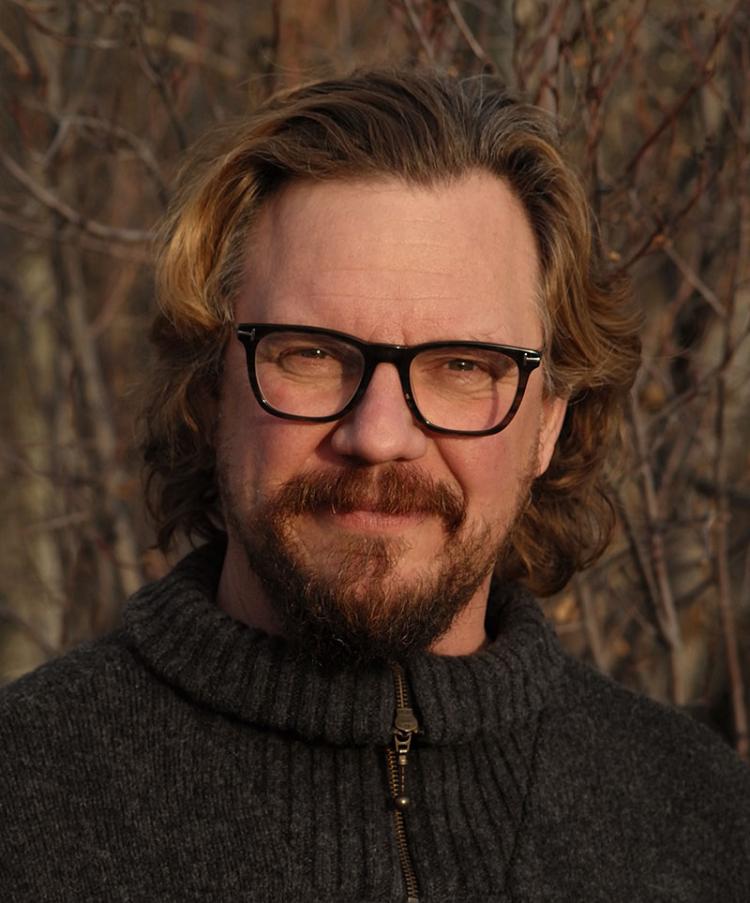The University of Saskatchewan (USask) is playing host for some of the world's best and brightest at a crucial international energy conference.

Dr. Greg Poelzer (PhD), a professor of USask's School of Environment and Sustainability and co-lead of the Energy and Mineral Resources for a Sustainable Future Signature Area, on site in Galena, Alaska, near the Yukon River.
The 2024 International Energy Forum takes place at USask's Convocation Hall from May 14 to 16, 2024. Dr. Greg Poelzer (PhD), a professor of USask's School of Environment and Sustainability (SENS) and co-lead of the Energy and Mineral Resources for a Sustainable Future Signature Area, said the conference gives USask a global stage to be at the forefront of the energy transition conversation.

Dr. Greg Poelzer (PhD), a professor of USask's School of Environment and Sustainability and co-lead of the Energy and Mineral Resources for a Sustainable Future Signature Area.
"We're helping to advance the conversation about what's possible in the world of energy," Poelzer said. "Some people refer to Saskatchewan as a flyover province. We're making all the planes land here to show the world what rich resources we are, and how strong USask can truly be."
Energy transition is the process of moving towards additional forms of energy generation besides primarily fossil fuels. Poelzer said it's a conversation that USask and the province need to be involved in as questions of energy security for the future become more and more prevalent.
The International Energy Forum will include speakers and researchers from Alaska and the rest of the United States, Norway, Sweden, other Canadian universities and Indigenous groups and communities throughout Saskatchewan.
The goal, as Poelzer puts it, is to bring together some of the world's best minds to discuss strategies and research for the future of energy. Topics will include the role of critical minerals, innovations for the energy transition and policymaking around energy.
"We've had research and collaboration efforts with partner institutions, with utilities and with Indigenous organizations, and we're pulling together this conference to bring them together - the best minds that are working on this - to share what's going on in each of these regions," Poelzer said. "It's a rare opportunity."
Poelzer highlighted the high-level researchers who are operating out of USask and advancing research and technology in the energy industry. He pointed to USask researchers like Dr. Oscar Zapata (PhD), the Centennial Chair in Community Energy Development, and Dr. Xiaodong Liang (PhD), Canada Research Chair in Technology Solutions for Energy Security in Remote, Northern, and Indigenous Communities as recognized national and international leaders at USask.
He also noted USask's Community Appropriate Sustainable Energy Security (CASES) Partnership reimagining energy solutions for remote and Indigenous communities led by Poelzer and Dr. Bram Noble (PhD) as an ongoing endeavour at the university to address energy security, as well as research into nuclear energy solutions being conducted at USask.
"We're known internationally for the work we're doing in this area," he said. "We're building a powerhouse here ... from the social science on economics and policy to the engineering side and everything in between."
As the world continues to address its energy needs in new and innovative ways, Poelzer said USask can continue to be at the forefront of the future of energy.
"USask truly can be the university the world needs because we do have the resources and the will and the networks to contribute to this energy transition," he said.
Together, we will undertake the research the world needs. We invite you to join by supporting critical research at USask.













